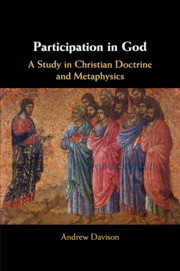Book contents
- Participation in God
- Participation in God
- Copyright page
- Dedication
- Epigraph
- Contents
- Acknowledgements
- Works of Thomas Aquinas: Texts, Translations, and Abbreviations
- Introduction
- I Participation and Causation
- II The Language of Participation and Language as Participation
- 6 Characterising Participation
- 7 Analogy
- III Participation and the Theological Story
- IV Participation and the Shape of Human Life
- Conclusion
- Bibliography
- Index of Names
- Subject Index
- Index of Biblical References
- Index of Works of Aquinas
7 - Analogy
Participation in Being and Language
from II - The Language of Participation and Language as Participation
Published online by Cambridge University Press: 15 August 2019
- Participation in God
- Participation in God
- Copyright page
- Dedication
- Epigraph
- Contents
- Acknowledgements
- Works of Thomas Aquinas: Texts, Translations, and Abbreviations
- Introduction
- I Participation and Causation
- II The Language of Participation and Language as Participation
- 6 Characterising Participation
- 7 Analogy
- III Participation and the Theological Story
- IV Participation and the Shape of Human Life
- Conclusion
- Bibliography
- Index of Names
- Subject Index
- Index of Biblical References
- Index of Works of Aquinas
Summary
In the writing of Thomas Aquinas, and more widely, the metaphysics of participation goes hand in hand with an account of language set out in terms of analogy (and particularly in relation to religious language). The question of how human words can have the capacity to bear witness to God isacknowledged as a real and considerable problem. The response provided here comes from Aquinas: words that we have learned, in by use in relation to creatures, can have bearing for discussion of God (not least as given in revelation) because the perfections that we name in creatures are first, foundationally, and causally, in God. The approach summed up as 'analogy' is contrasted with two others: equivocity and univocity. An analogical approach to language is seen to be present in the scriptures. The chapter closes with a survey of some of the forms of analogy that were put forth in the High Middle Ages.
Keywords
- Type
- Chapter
- Information
- Participation in GodA Study in Christian Doctrine and Metaphysics, pp. 171 - 198Publisher: Cambridge University PressPrint publication year: 2019

